The Case For (and Against) Trump's Plan For Afghanistan

By:
With the war in Afghanistan approaching its 16th year, President Donald Trump announced plans to maintain a military presence and send an unspecified number of additional troops to the country.
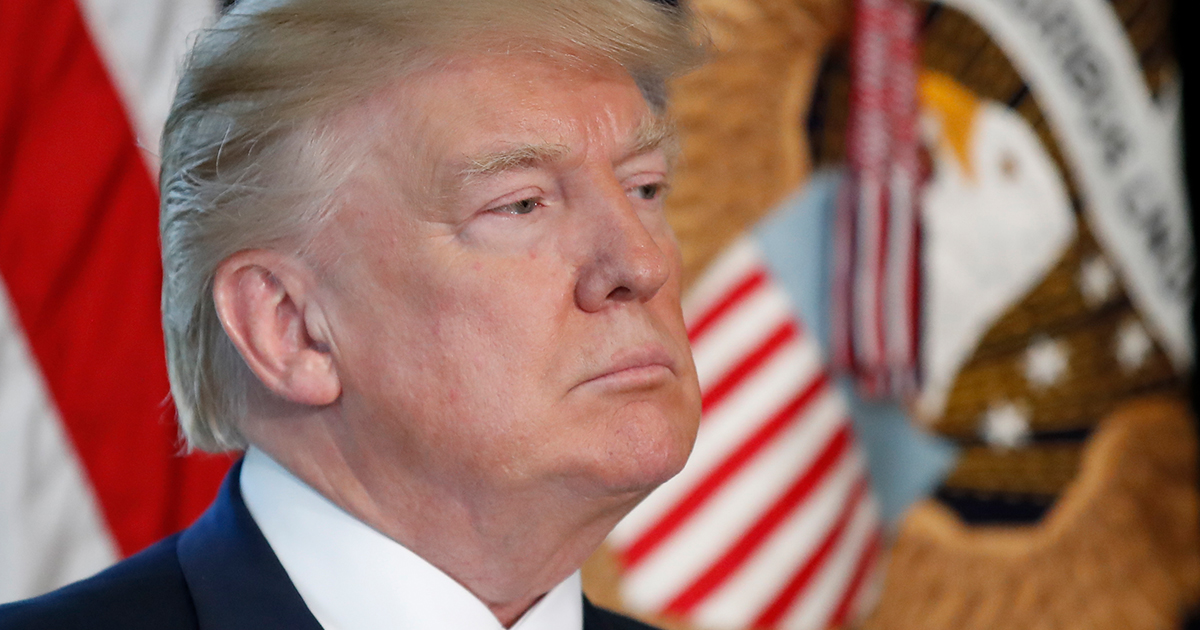 AP/Alex Brandon - apimages.com
AP/Alex Brandon - apimages.com
The president said on Monday that the decision went against his "original instinct" to withdraw from the prolonged conflict—an instinct shared in numerous tweets and interviews during the Obama administration—but that action was necessary in order to stymie to spread of terrorist groups, which threaten to fill the "vacuum" that'd be left if American troops abruptly dispersed.
In many ways, the strategy Trump outlined at his prime-time address on Monday resembles that of the previous administration: a modest increase in troops with no clear vision for an eventual withdrawal. Among lawmakers, reactions to the address have been mixed, with Ohio Gov. John Kasich (R) and Sen. Rand Paul (R-Ky.) voicing opposition to the plan. ATTN: spoke to two experts with opposing views of Trump's Afghanistan strategy to better understand these divisions.
The Case For Trump's Afghanistan Plan: Michael O'Hanlon, senior fellow in foreign policy at the Brookings Institute.
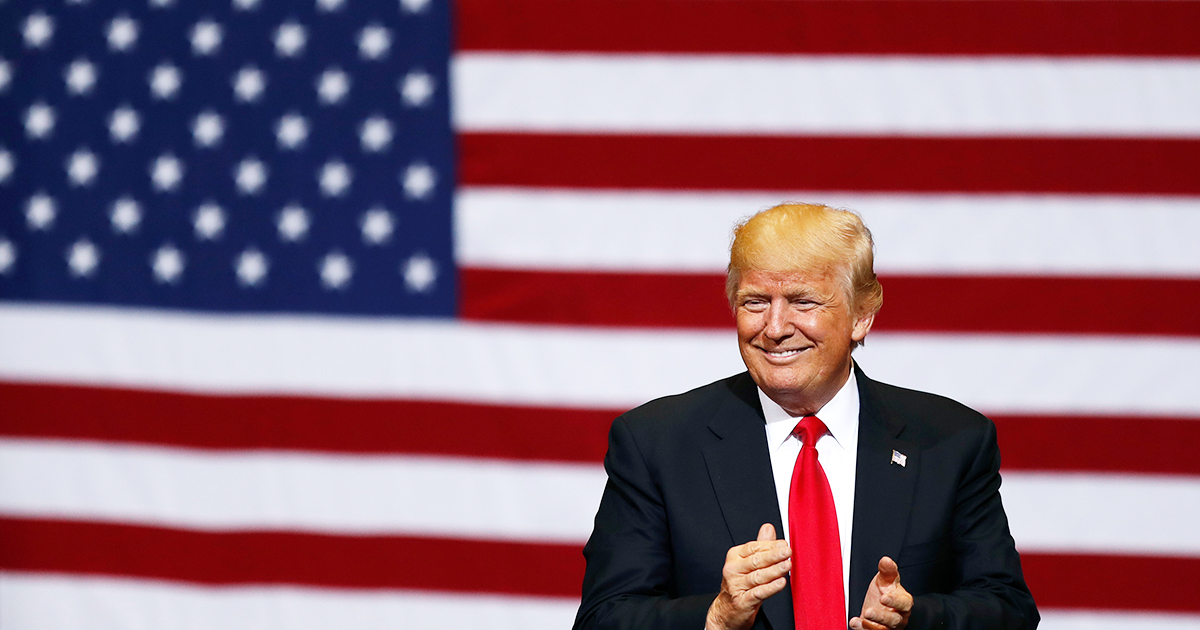 AP Photo/Charlie Neibergall - apimages.com
AP Photo/Charlie Neibergall - apimages.com
ATTN: You wrote an article in May laying out a foreign policy plan for Afghanistan. Did the president's plan more or less align with what you proposed as an effective strategy?
Michael O'Hanlon: Yes, I was very supportive of the president's speech. That piece was essentially 90 to 95 percent in agreement with the new Trump strategy. I think it's got the right basic pieces and I'm happy to see it.
ATTN: Do you think adding 4,000 troops represents an appropriate increase?
MO: I think that's the right ballpark. On that kind of a detail, Trump doesn't feel the need to set an exact feeling or an exact target, which is some distinction from Obama. Also, the issue of time horizons is some distinction, where President Obama—in his second term in particular, but even in the first term—wanted to keep giving deadlines when a certain phase of the war would be over, and perhaps even raise the prospect of leaving altogether. Trump has decided that's not the way to go, so there's another difference in terms of the way these things are framed. That may be less of a policy difference on the ground than broader framing and the message you're sending. Those points are important to underscore, but I don't see a radical shift otherwise.
ATTN: What kind of an effect would this surge have, in your view?
MO: I believe the main purpose will be to create advisory and mentoring teams that would be deployable out in the field with Afghan units. Today we have advisory teams with most of the [Afghan] army corp, each one of them about 25,000 soldiers more or less. There are about a half dozen around the country. But we don't have any presence below those central headquarters; we don't have any sort of mobile, deployable presence out in the field.
Now obviously putting Americans out in the field—even if they're not technically doing the fighting—they're going to be vulnerable if units themselves get exposed in combat. You need a certain amount of quick response capability, you may need a little bit of additional air power to be able to support people in different parts of the country on short notice, so those are the other ways you drive up the numbers. I would say 500-1,000 people on the actual advisory teams and then a couple thousands more, maybe 3,000, who are supporting them, backing them up, helping them if they get in trouble, providing air power to them and to the Afghan units that they advise.
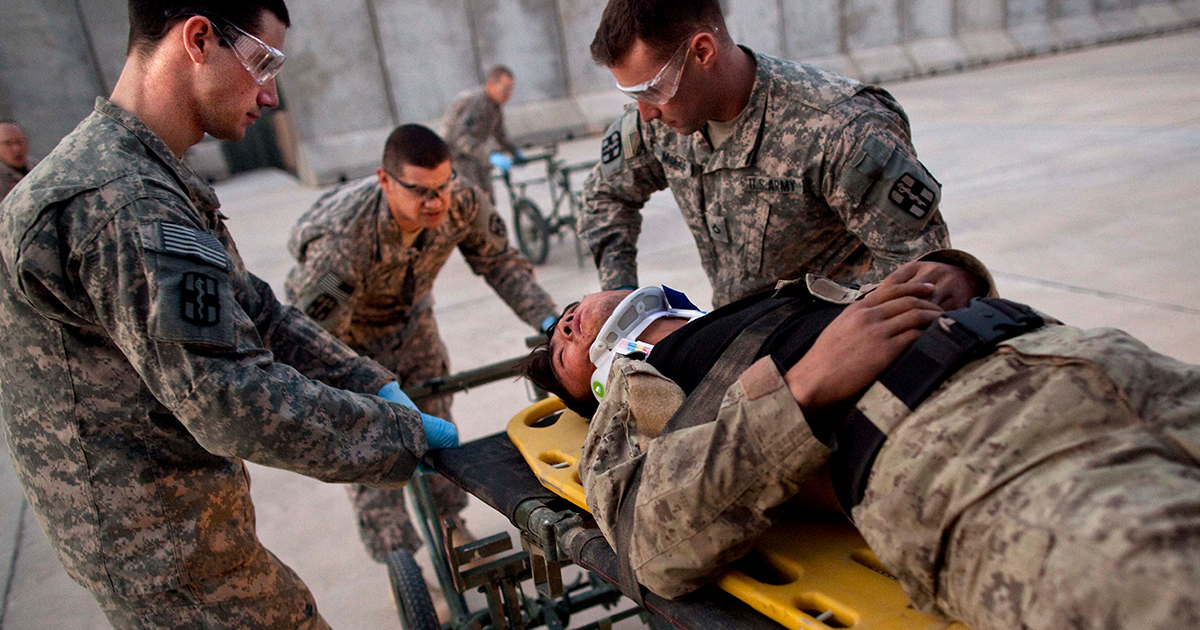 AP/Kevin Fryer - apimages.com
AP/Kevin Fryer - apimages.com
ATTN: In your article, you did argue that increasing the number of troops wouldn't be enough. What else about Trump's plan leads you to believe it'll be effective?
MO: Well, it's not enough. It is the most controlled thing. I mean, a lot of the other issues are difficult, and they're only gradually making headway. There has been some progress by the Afghan government in fighting corruption under [Afghanistan] President Ashraf Ghani, and that's not frequently enough appreciated on issues like government procurement reform. We have to keep at that. And our role is to keep supporting people like Ghani who want to be reformers; it's also to keep putting some pressure on the Afghan government to withhold funds from Afghan government agencies that might not be as good at insisting on these kinds of aboveboard transparent awarding of contracts, or may not do the kinds of investigations to ensure that funds are not diverted.
You've got to keep up that issue. Then I think we have to really get the Afghans to have their elections next year and the year for the parliament and president. And that means probably putting pressure on them to improve the electoral oversight boards that they have created but are somewhat politicized.
Maybe most of all, trying to put pressure on Pakistan—and of course, Trump did talk about that. It's gotta be done in the spirit of tough love because the Pakistanis do have some real grievances against us, and we're not going to be able to ignore or eliminate those. And if we just get all punitive with no proportionality and no hope of a better relationship down the road, I think they're going to raise up their hackles and probably fail to cooperate—and it could even deteriorate further. Those are the main things that I would try to add to the troop issue.
ATTN: Do you agree with the president's assessment that withdrawing from Afghanistan would leave a void that'd be subsequently filled by terrorist groups?
MO: Yes, I think there's a very distinct possibility that ISIS and Al-Qaeda and maybe even other groups like Lashkar-e-Taiba, which carried out the Mumbai attacks in 2008—that they could actually profit from any U.S. withdrawal because that would also probably lead to a weakening or even collapse of the Afghan government in its control over territory.
ATTN: What do you make of the argument that the United States' extended, military involvement in Afghanistan have fueled terrorist activity in the country?
MO: I think the sequencing shows that the Taliban came to power because Pakistan needed a proxy that could actually do some controlling of that country at a time when we had left. So the history would argue in exactly the opposite direction.
The Case Against Trump's Afghanistan Plan: Derek Davison, writer and researcher who specializes in foreign policy.
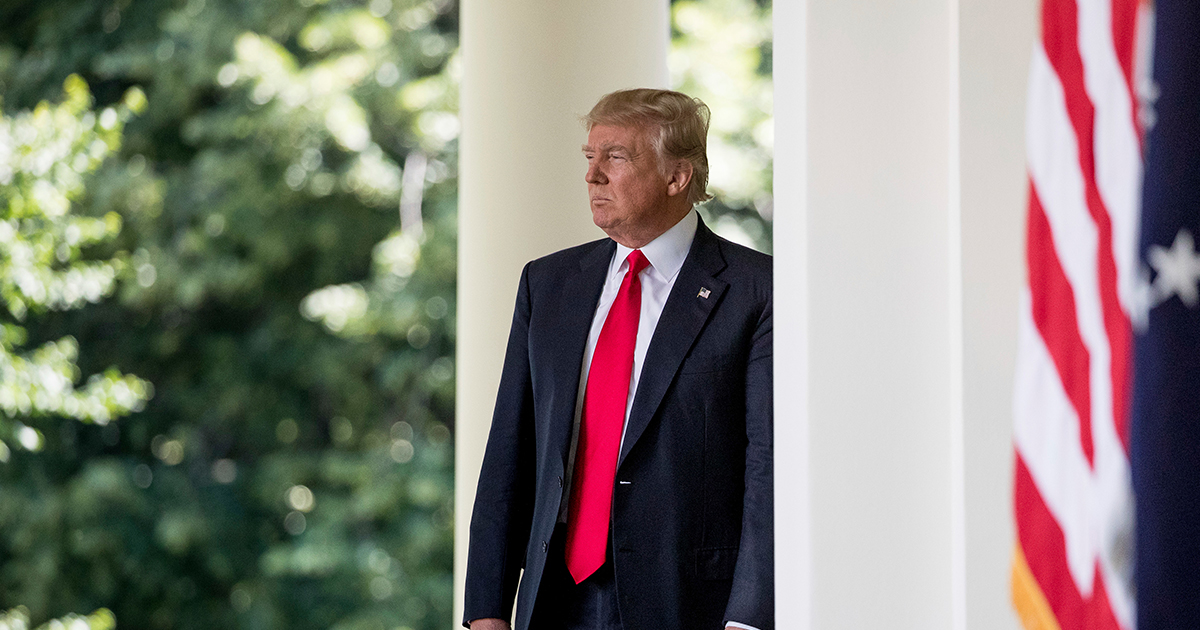 AP Photo/Andrew Harnik - apimages.com
AP Photo/Andrew Harnik - apimages.com
ATTN: Were you surprised that Trump opted for escalation rather than withdrawal?
Derek Davison: No, I mean that had been pretty clear. The only voice in the administration—and I'm certainly not being complimentary here about him—but the only voice that was left in the administration that was arguing against escalation was [former chief strategist Steve] Bannon, and he's obviously no longer there. No, I wasn't surprised.
ATTN: What alternative strategy would you have endorsed?
DD: I would have endorsed withdrawal. I would have endorsed withdrawal with an expanded effort to provide humanitarian aid to the country [and] an expanded diplomatic effort. But our presence there has gone past the point of where it's unproductive and it's gotten to the point where it's counterproductive.
I think the presence of the United States in Afghanistan raises the stakes of the war there, puts us in the middle of a civil war, [and] it draws in outside actors. The Taliban is being sustained by aid from Russia and Iran that I don't think would be there if the United States weren't there. I question the wisdom of being there at all at this point.
ATTN: What do you make of the argument that leaving would empower terrorist groups and allow them to fill a "vacuum"?
DD: This is the argument that's used over and over and over and over again to justify military intervention. That if we don't intervene, if we don't escalate, if we don't stay, we're going to empower terrorism. Nobody ever asks the question, whether our interventions and our staying there and our escalating is what's empowering the terrorists. I would argue that's a question that we should be debating, to say the very least.
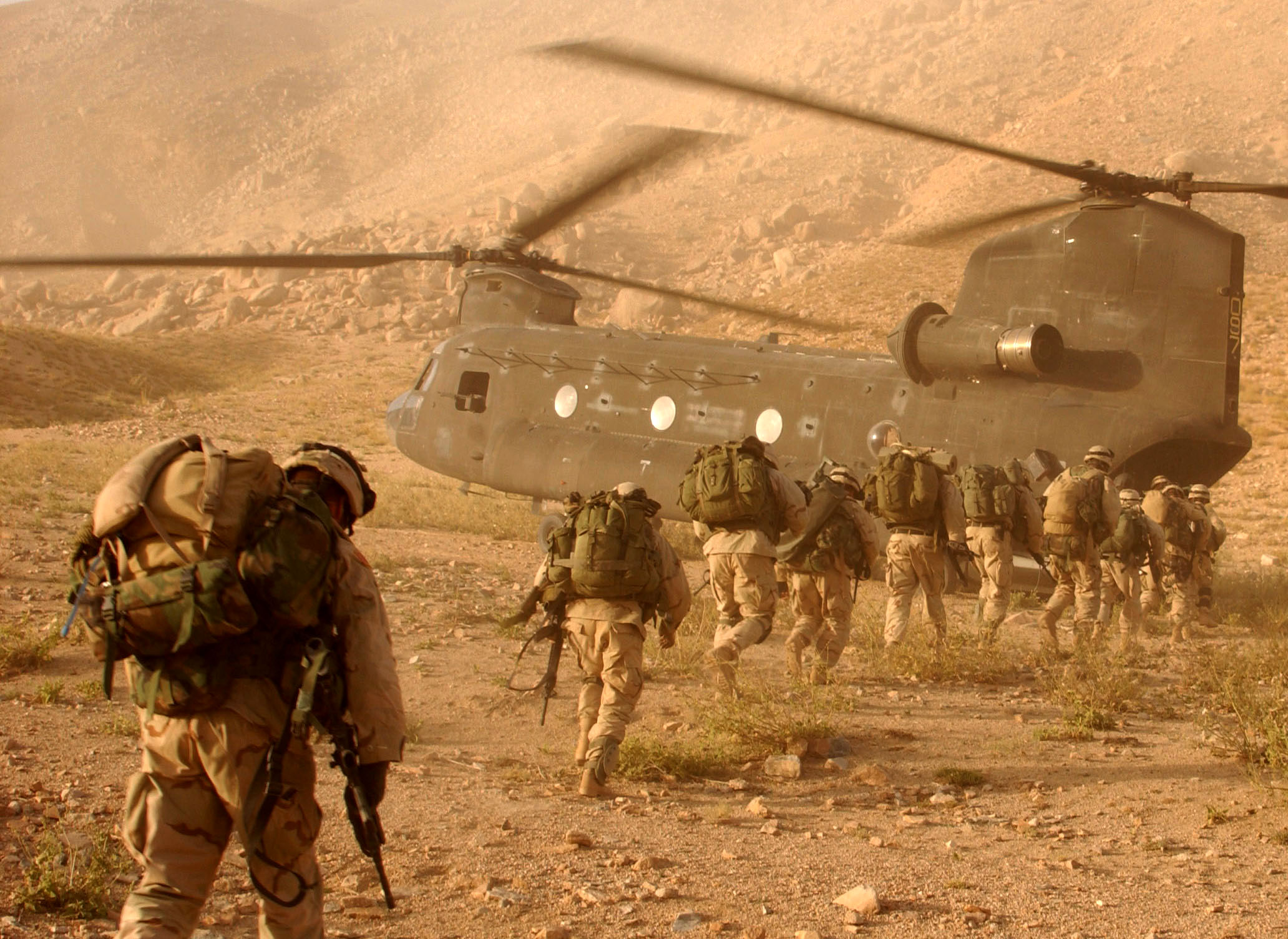 Wikimedia - wikimedia.org
Wikimedia - wikimedia.org
ATTN: Reports from Monday suggested that there'd be a surge of about 4,000 additional troops. What effect, if any, do you imagine that'd have?
DD: Four-thousand additional troops means that there's not going to be a major frontline component for the United States. We're not doing Surge 2.0. This is sending a few more trainers and some advisors, maybe some spotters on the battlefield; but it's basically doing what America is already doing there, but maybe a little more of it.
The problems in Afghanistan are deeper than a lack of training in the armed forces. There's a fundamental failure to create a government that functions, that works, that has any legitimacy outside of Kabul. The problems involve the fact that promises are governed by these local warlords who do things like kidnap and torture and abuse their political enemies. The vice president of the country is accused of doing that. Money disappears, weapons disappear. The issues run much deeper than 'we need to train and equip the Afghan army better.' The Afghan army is struggling because its leadership is struggling. You have issues there that trainers and spotters and whatever else it is that we're going to be doing... It's throwing more men into a situation where the problems aren't going away and we're not doing anything to address them.
ATTN: What do you make of the mainstream media's response to Monday's address?
DD: The mainstream media is always—they've shown this now—they're always going to genuflect to any mention of military force, or any use of military force. We saw it quite clearly when he struck the Shayrat airbase in Syria. You had supposedly objective media types fawning for days about how presidential this was and how tough and strong. That's the same thing we saw last night. You see all this 'he's finally president, this is his presidential moment, he read that speech so well.' It's all the fetishization of military force, and it's a huge problem in the American media—it has been for a very long time and we can expert it to continue.
